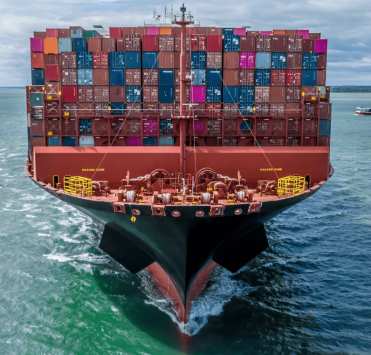DAP, DDP and DPU: What are the differences and who is responsible for what

DAP (Delivered at Place), DDP (Delivered Duty Paid), and DPU (Delivered at Place Unloaded) are terms from Incoterms (International Commercial Terms) used in international trade to define the terms of delivery for goods. They determine who is responsible for costs and risks at different stages of transportation.
1. DAP (Delivered at Place)
- Obligations of the sender (seller): The seller is obligated to deliver the goods to the agreed destination (e.g., the buyer's warehouse or another delivery point). The seller bears all risks and costs until the goods arrive at that location but is not responsible for unloading the goods.
- Obligations of the recipient (buyer): The buyer is responsible for unloading the goods and further customs clearance, including paying duties and taxes.
Risks: The seller bears the risk of damage or loss of the goods until delivery to the agreed place. After delivery, the risk transfers to the buyer.
Transport: The seller is responsible for organizing transportation to the destination. However, unloading the goods remains the buyer's responsibility.
Customs procedures: The seller is responsible for export formalities, but import duties and taxes are the buyer's responsibility.
2. DDP (Delivered Duty Paid)
- Obligations of the sender (seller): The seller is responsible for delivering the goods to the agreed destination and for paying all import duties, taxes, and completing customs procedures in the buyer's country. The seller bears all costs and risks until the goods are delivered to the buyer.
- Obligations of the recipient (buyer): The buyer simply accepts the goods at the destination, without bearing responsibility for customs procedures and costs.
Risks: The seller bears all risks until the goods are delivered to the buyer. This is the most binding term for the seller.
Transport: The seller is responsible for transportation, including all possible costs, including unloading, unless otherwise specified.
Customs procedures: The seller is required to complete both export and import customs procedures, paying all duties, taxes, and other fees. The buyer only receives the goods at the agreed place.
3. DPU (Delivered at Place Unloaded)
- Obligations of the sender (seller): The seller is obligated to deliver the goods to the agreed destination and perform the unloading. The seller bears all risks and costs until the goods are unloaded at the specified location.
- Obligations of the recipient (buyer): The buyer is responsible for customs clearance and paying duties and taxes after the goods are unloaded.
Risks: The seller bears the risks until the goods are unloaded at the agreed destination. This differs from DAP, where risks transfer after delivery but before unloading.
Transport: The seller is fully responsible for the transportation and unloading of the goods at the agreed location. This includes the risks and costs associated with unloading.
Customs procedures: As with DAP, the seller is responsible for export formalities, while the buyer is responsible for import duties and taxes.
Key Differences:
- DAP: The seller delivers the goods to the destination but does not unload them or pay import duties.
- DDP: The seller bears all costs, including duties and taxes, until the goods are delivered to the buyer.
- DPU: The seller delivers and unloads the goods at the destination, but the buyer is responsible for import duties and taxes.
When to Use:
- DAP is suitable if the buyer wants to control the unloading and customs procedures independently.
- DDP is convenient when the buyer wants the seller to take on all responsibilities related to delivery, customs procedures, and duty payments.
- DPU is used when the buyer wants the seller to deliver and unload the goods but is prepared to handle customs procedures themselves.
General Recommendations:
- For the seller, DAP is the least risky option, while DDP is the most risky.
- For the buyer, DDP is the most convenient, as all procedures are handled by the seller.
These terms are part of international Incoterms standards, which provide transparency and clarity in trade agreements. Choosing the right Incoterms term is critical for effectively managing risks and costs in international trade.









